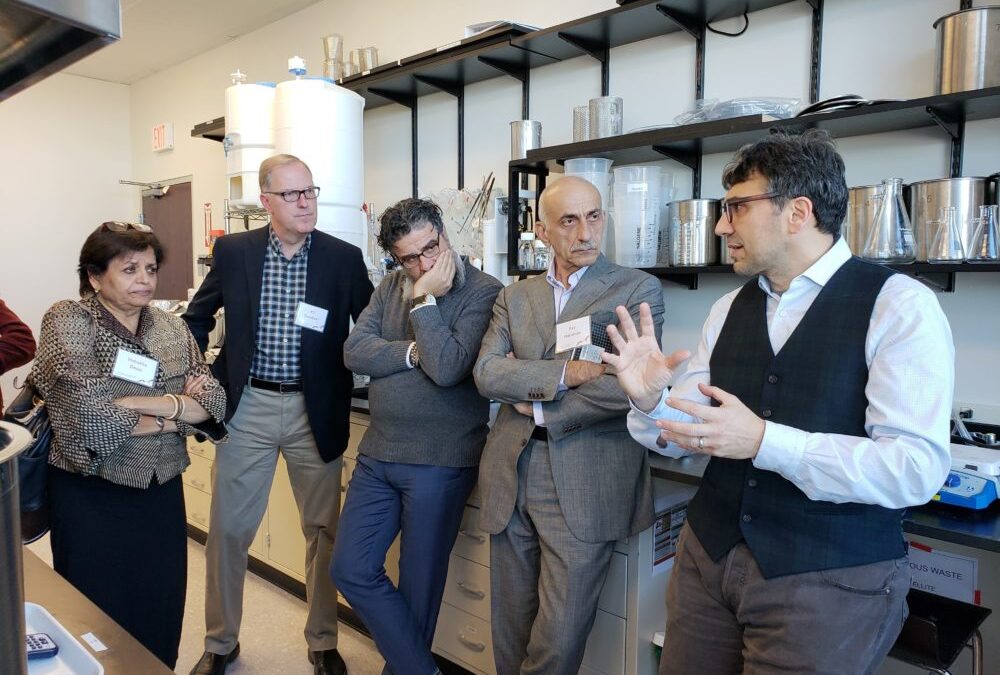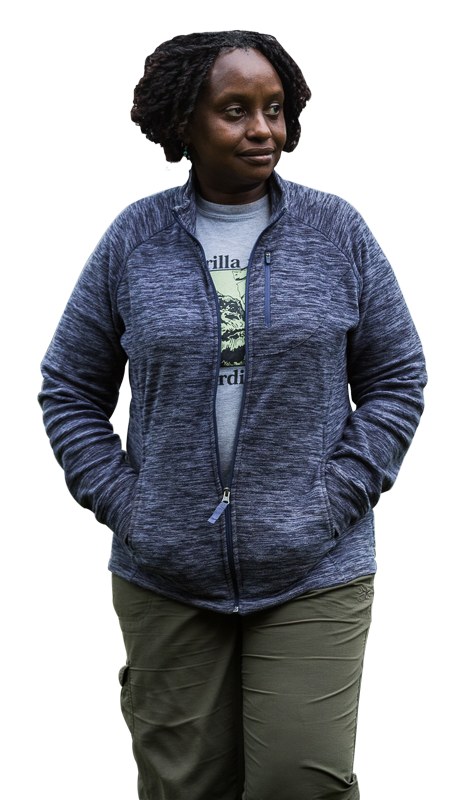What do magical thinking, salamander tails, free will, the human genome, and the Universal Declaration of Human Rights have in common?
Answer: The Tällberg Foundation’s recent workshop, “Inside Every Utopia is Dystopia,” which was hosted by Fio Omenetto at Silk Lab at Tufts University in Boston, on January 17th.
Prominent scientists—including two recent Winners of the foundation’s Eliasson Global Leadership Prize, Omenetto and Rafael Yuste—engaged with engineers, academics, NGO leaders, investors, artists, designers, and more (see complete list of participants below). In typical Tällberg fashion, they brought a wide range of ideologies, perspectives, and experiences to a discussion of the technological and scientific advances that could have profound consequences in the next decade or two.
The scope of their questions was equally broad:
- Who has the right to decide to use technologies—the means, say, for wiping out the mosquito that spreads the Zika virus—that could have enormous upsides, but not fully understood side effects?
- How did life start on other planets, and can we—should we—try to reproduce the process?
- Who tells the scientists which box not to open? Is the Precautionary Principle—which boils down to “don’t do stupid stuff”—sufficient to prevent ethically or morally questionable work?
- If the mind is generated by the brain, and if scientists are on a path to manipulate the brain, what are the implications for free will?
- As technology drives ever-greater transparency—including of our thoughts—what are the consequences for culture, morality, and ethics?
- Do greater degrees of individual freedom imply greater degrees of individual obligation?
“A lesson of history is that progress means barbarity,” noted one participant, “and discovery implies destruction of what came before.” Yet the optimists in the room argued that “these are the days of miracle and wonder,” where new tools allow ever deeper and more profound understanding of our world (indeed, of our universe), as well as the capacity to manipulate it.
Discussion of ethics and morality was intertwined with presentations about building brain systems based on human tissue, exploring the software of life, possibilities of human cognitive enhancement, biodegradable geo-engineering applications, and access to bioengineered human organs. For example, the conversation about autonomous systems—ranging from cars to weapons systems—led to the observation that complete autonomy is undesirable and that we should aim for systems that operate in conversation with humans to make key decisions.
“That requires the development of artificial conscience,” said one technologist. As a measure of the kind of conversation that flowed throughout the day and into the evening, no one seemed to think this was an extraordinary, or impossible, idea.
The workshop kicked off a two-year series of focused discussions, designed to spark deep exchanges between top scientists and leaders in other fields, which will take place in different cities and with various interlocutors. The next, to be held in New York in the fall, will focus on aspects of applied neuroscience, including predictive analytics and behavioral modification.



Los humanos dejando de ser humanos luego de una alucinante carrera de la ciencia desbordando las fronteras marcadas por los arquetipos fijados como “leyes genómicas” dinámicamente ejecutadas por la comunicación permanente del DNA y su correspondiente RNA, estímulo que activa la respectiva red neuronal en respuesta al libre albedrío [la opción elegida y ejecutada] para recibir la enseñanza moral para cada individuo de nuestra especie.
Pero la ciencia no se detiene en su afán de eliminar la degeneración que nos conduce a la vejez corporal y mental, que seguro será el primer paso para lograr la eterna juventud, etc. como diciendo la ciencia: “El Hombre re-creador del Hombre”.. Hasta que punto estas pretenciones sean “moral”, “amoral”, “inmoral”, “éticas”, “no éticas” o una perfecta “rebelión” contra el diseñador original del arquetipo humano que nos mantiene como especie en este planeta.
Comment LOS SERES HUMANOS DEJAMOS LO SIMPLE PARA ANDAR EN LO COMPLEJO; UN MAESTRO DIJO LA SIMPLEZA ES DOS VECES MEJOR, CREO QUE SIENDO ETICOS TRATAMOS DE SER DIOS, CUANDO SOMOS DEMASIADOS LIMITADOS